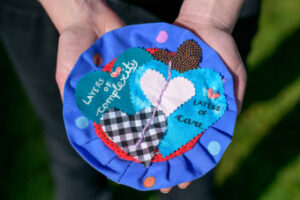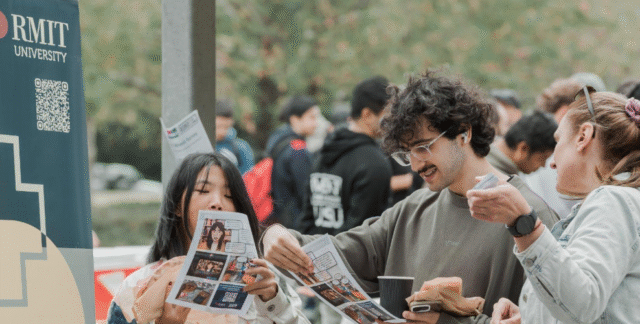UNSW has been awarded their second SAGE Cygnet Award, recognising their progress, outcomes and impact towards equity, diversity and inclusion across the institution.
The award specifically recognises their successful interventions to improve flexible work opportunities and support employees with caring responsibilities, including parents.
Giving carers flexibility
In 2018, UNSW’s staff surveys identified a need to better support employees who were taking career breaks and working flexibly. Flexible work was available, but offered on an ad-hoc basis by line managers and not consistently documented, and staff reported a lack of awareness of some options available to them.
UNSW has tackled this challenge from a variety of angles, to ensure that policies and procedures are consistently applied, and flexible work options are communicated clearly to staff.
Awareness raising activities included the development of a Flexible Work Toolkit and a blog for staff showcasing “Flexible Work Stories”, and communicating leave and support options through internal communications channels. They also introduced a new scheduling policy to limit meetings to the hours of 9.30am to 4.00pm, formalised “change of hours” documentation, earned Best Practice Breastfeeding Friendly Workplace accreditation and provided ergonomics support in home workstations.
In 2023, the university replaced the ‘Vice-Chancellor’s Childcare Support Fund for Women Researchers’ with the introduction of the Carers’ Support Fund, which broadened eligibility criteria to all UNSW employees (professional and academic) and HDR students of all genders with both childcare and primary caring responsibilities, for use in a wider range of career development activities, now including networking and fieldwork.

The Athena Swan (SAGE) team has also funded UNSW’s Social Policy Research Centre to deliver research into the outcomes of a new support program, Career Coaching for Carers (3C) for academic women, including sessional staff and post-graduate students (cis and trans), with current or recent carer responsibilities. “Supporting Carers at UNSW Sydney: Findings from the Career Coaching for Carers (3C) initiative” was published in November 2023, providing recommendations for further changes.
Evidence of impact
SAGE CEO Dr Janin Bredehoeft congratulated the university, especially the team who have been leading this work.
“This is an enormous and impressive suite of activities. UNSW has recognised the intersectional complexity of caring and their approach to flexible work reflects those varying needs.”
Surveys show that the interventions have had a positive impact on staff experience. One manager reflected on the benefits that the new flexible work policy brought to their team: “It’s really important to build trust and when you say ‘it’s fine’ [to work flexibly], it shows that I trust you, so I think it’s a really important concept.”
In 2023, 86% of surveyed continuing and fixed-term staff reported that they “have the flexibility [they] need to manage work and other commitments.”
UNSW’s Cygnet Award application also highlights areas for further progress. For example, the 3C report showed that there is a need for a clearer understanding of actual numbers of carers working at UNSW and the needs of carers in the broader UNSW cohort.
Continuing the work
UNSW previously earned a SAGE Cygnet Award for improving gender equity in career progression.
“It’s fantastic to be awarded our second Cygnet,” said Scientia Professor Fiona Stapleton, Academic Lead for the SAGE Athena Swan program at UNSW.
“With the ongoing dedication and support from the Self-Assessment team, Cygnet working groups, Project team, Faculties, and Divisions, we continue to encourage a culture at UNSW that champions flexible work and supports employees with family and caring responsibilities.
“Through this continued work, which leverages the robust strategy supported by the institution, the teams have been able to deliver evidence-based initiatives, workshops and relevant resources. We believe this improves the attraction, retention and progression of staff with family and caring responsibilities UNSW,” said Professor Stapleton.
Bruce Watson, Pro-Vice Chancellor, Inclusion also stated “This achievement reflects our commitment to developing a more inclusive culture, where all staff can succeed . Significant progress has been made through the Athena Swan Bronze Action Plan, including the introduction of vertical job sharing, Parents at Work workshops, a revamped UNSW Carer’s Fund, the Career Coaching for Carers initiative, and ongoing data capture, assessment and uplift. Despite our achievements it’s important to also recognise the opportunities and work still to be done to drive greater support for staff with family and caring responsibilities.”
About the Cygnet Award
Cygnets are awarded to organisations that can demonstrate they have achieved sufficient progress and impact in removing or reducing a key barrier to equality.
This Award builds on the organisation’s 2018 Bronze Award, the foundational level of accreditation under the internationally recognised Athena Swan framework. Organisations working with SAGE must earn a total of five Cygnet Awards before being eligible for the next stage of accreditation: the Silver Award.
The Athena Swan framework has been designed to support improvements in equity, diversity and inclusion in the higher education and research sector. Science in Australia Gender Equity (SAGE) is the only organisation that administers the framework in Australia.
Learn from UNSW’s actions
Like all work recognised with a SAGE Cygnet Award, UNSW’s work demonstrates some of the current best practices in Australian’s higher education and research sector in improving equity, diversity and inclusion.
This is how to go about transformative change that fixes the system, not the people.
You can learn from UNSW’s interventions and replicate them in your own organisation. Find out more including detailed actions and how they made their change in the full application for their SAGE Cygnet Award.



